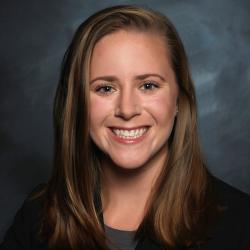March 14th, 2020
The UC San Diego Health System has developed a diagnostic test that can determine whether a patient has contracted the novel coronavirus in about eight hours.
Developed under guidance that the FDA published roughly two weeks ago amid the severe shortage of tests for the viral illness, COVID-19, UCSD Health developed and validated an in-house test in nine days, according to an emailed statement distributed late Friday.
UCSD Health, one of five academic medical centers within the 10-campus University of California system, started using the test Tuesday to diagnose patients, it said. So far, however, capacity has been limited: It can perform about 20 tests daily, which are being deployed for UCSD Health patients who are “under investigation” for COVID-19, according to the system.
What’s limiting its testing is the availability of reagents—the chemicals used to perform the test, which uses a common lab technique called polymerase chain reaction (PCR) to amplify the pieces of genetic material in a patient sample, according to the health system’s Friday missive. But it didn’t identify which reagents were the limiting factor, or explain why they were limited. The health system is pursuing “multiple strategies to substantially increase capacity” in the next few weeks, but didn’t specify what those entail. (Xconomy has requested this information and will update the story as we learn more.)
UCSD Health emphasized that its limited capacity means it can’t accommodate everyone who requests a test. But it hopes to relax the current testing criteria as more of the necessary materials become available, according to the statement. UCSD Health also noted it is aiming to reduce the time its test takes to under six hours. The current length, eight hours, includes time for the lab to first rule out other respiratory illnesses, including the flu, before testing for COVID-19, it said.
Other health care providers are sending patient samples to external labs, such as county health departments, commercial laboratories, and the Centers for Disease Control and Prevention in Atlanta, which return results in about 24 hours to up to three days, UCSD Health noted.
The San Diego health system, along with UCLA and UC San Francisco, is among the first in the US capable of in-house COVID-19 testing, it said. UCSD Health, which is the region’s only academic medical center, operates three hospitals with about 800 beds across them. The information in the statement it sent Friday was attributed to Steven Gonias, the health system’s chief of pathology, and David Pride, associate director for diagnostic microbiology at the UCSD Center for Advanced Laboratory Medicine, which houses clinical laboratories and the pathology department’s diagnostic services.
A total of 145 people in San Diego County had been tested for evidence of coronavirus infection as of Friday, according to the county’s online tracker, excluding 20 patients in federal quarantine at Marine Corps Air Station. Eight of the 145 are presumed to have the virus, 38 are pending results, and 99 tested negative, according to the county. As of Friday the CDC tallied 1,629 confirmed cases and 41 deaths from the infection nationwide.
Others in the life sciences community have also been scrambling to make more tests available as the virus’s spread continues, including companies readying them to sell to health care providers. Swiss pharma giant Roche and Waltham, MA-based ThermoFisher (NYSE: TMO) received emergency authorizations from the FDA to sell their respective tests this week. Roche said its test, when run on its automated molecular testing machines, provides a result in about three and a half hours.
FDA Commissioner Stephen Hahn said Friday that more than 80 developers have told the agency they are working on tests for which they plan to request special authorization.
The FDA guidelines provide some time for those who have developed and validated tests to ask for an emergency-use authorization even after beginning to use them. But those who use only CDC-qualified reagents and follow its protocol aren’t required to apply for authorization, the guidelines say.
Two companies—Iowa-based Integrated DNA Technologies (IDT), a subsidiary of medical equipment maker Danaher (NYSE: DHR), and the UK’s Biosearch Technologies—sell kits that qualify, according to the FDA. IDT said Monday it had so far produced enough CDC-qualified kits to perform 1 million tests, and that it planned to make enough for 2.5 million more this week, then 5 million weekly starting March 16. Biosearch said Monday it had 625 lots of kits available for sale, or capacity for 625,000 tests (each kit is good for 1,000 tests), but that it intends to build 1,000 kits weekly going forward, increasing the number of tests that could be performed using those it sells to 1 million per week.

